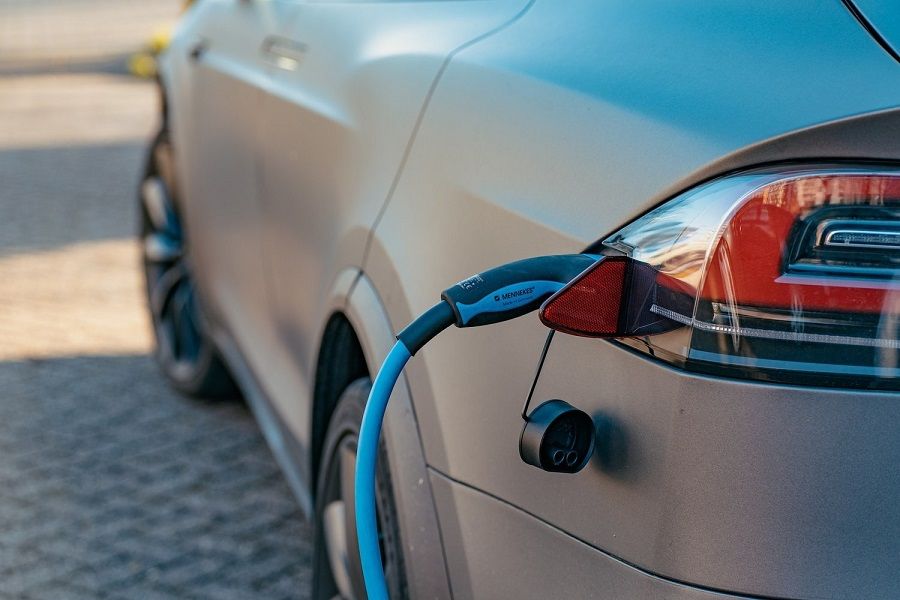Electric vehicles are becoming increasingly popular due to their environmental benefits, lower operating costs, and technological advancements. Electric cars do not emit any tailpipe emissions. They reduce air pollution and the use of fossil fuels, making them more environmentally friendly. Many customers are considering purchasing electric vehicles to combat climate change and reduce carbon emissions. Electric vehicles (EVs) are expected to reduce maintenance costs and the need for repairs because there are fewer moving parts.
1. Evaluate the Range of Electric Vehicles
When purchasing an electric car, the range (how far you can travel on a charge) is crucial. Recent electric vehicles have improved their range, which was discussed earlier. Electric vehicles with a range of 200 to 200 miles are suitable for most daily commutes and short trips. If you travel long distances frequently or live in an area with inadequate charging infrastructure, you should carefully consider the range of your car. Fast driving, cold weather, and climate control can all limit range, so consider how these factors affect your car’s range.
2. Charging Infrastructure
Another important factor when buying an electric car is charging infrastructure. Unlike gas stations, charging stations charge electric vehicles. Public charging stations are becoming more common, especially in urban areas and along roads, but availability varies by location. If you plan to use a public charging station, research the stations in your area and the ones you travel to regularly. Many electric vehicle owners install home charging stations for convenience. These require an upfront fee, but you can charge your car overnight and avoid public chargers in most cases.
3. Understand Charging Types
Different chargers charge electric vehicles at different speeds. The most popular are Level 1, Level 2, and DC fast chargers. Charging a car battery with a Level 1 charger from a household outlet takes the longest, often taking more than 24 hours. Level 2 chargers are faster and are usually installed at homes or public stations. These chargers can fully charge most electric vehicles in 8-10 hours. DC fast chargers, also known as rapid chargers, can charge up to 80% in 30 minutes, making them ideal for long journeys or quick charging. Not all electric cars can use DC fast charging, so check your car’s specifications before using it.
4. Total Cost of Ownership
Electric vehicles cost more upfront but save money over time due to lower running costs. Electric cars have lower fuel costs, which is a big advantage. Charging an electric car is cheaper than filling it up with gas, especially in homes with off-peak electricity consumption. Electric vehicles have fewer mechanical parts, which means lower maintenance costs. There are no oil changes, exhaust system maintenance, or transmission work required, saving you money over the life of the vehicle. The total cost of ownership should include a home charging station and any electrical modifications.
5. Research Incentives and Rebates
Many governments and localities offer financial incentives for electric vehicle adoption. These subsidies offset the higher initial cost, making electric vehicles more affordable. Electric vehicle buyers may receive tax credits, rebates, or subsidies in various states. In some states, electric vehicle owners may receive savings or incentives on their electric bills for installing home charging stations. Research your local incentives, as they vary widely. These programs can make electric vehicles more affordable for budget-conscious buyers.
6. Evaluate Battery Life and Warranty
Batteries for electric vehicles are critical, so performance and longevity should be considered when purchasing. As all batteries degrade, the range of the vehicle decreases. Most electric car manufacturers offer a battery warranty of 8 years or 100,000 miles. This warranty gives buyers the peace of mind that the battery will be replaced or repaired if it fails prematurely. Many modern electric vehicles are designed to prevent battery degradation, and real-world data shows that most EV batteries retain significant capacity after many years. Before purchasing an electric car, read the battery warranty.
7. Depreciation and Resale Value
Like other vehicles, electric vehicles degrade over time, but the rate of degradation depends on several factors. Electric vehicles depreciate faster than gasoline vehicles due to battery life issues and low demand for used cars. This trend is changing as electric vehicles become mainstream and their technological advancements increase. Some electric cars, especially those from reputable companies, hold their value better. Future incentives and rising gas prices can make used electric vehicles more attractive to buyers. Before buying an electric car, check the depreciation rate if residual value is a priority.
FAQs
1. How long does it take to charge an electric vehicle?
Charging time varies depending on the type of charger. A DC fast charger can charge the battery to 80% in 30 to 45 minutes, while a Level 1 (regular wall outlet) charge can take more than 24 hours.
2. Do I need a special outlet for my electric car at home?
Electric vehicle owners often install 240-volt Level 2 charging stations in their homes for faster charging. This usually requires professional installation.
3. Are electric vehicles more expensive to maintain than fuel vehicles?
No, electric cars have fewer moving parts and lower maintenance costs. There is less wear and tear on the brake system and no oil changes are required with regenerative braking. Most electric car batteries come with a warranty, but replacement is expensive.
4. What incentives are available to buy an electric car?
Some countries offer tax credits and rebates to encourage the purchase of electric vehicles. Check local availability, as details vary by region.
5. How long do electric car batteries last?
Electric vehicle batteries typically have a lifespan of 8-10 years or 100,000-150,000 kilometers, but some batteries last longer. Manufacturers typically provide an 8-year or 160,000-kilometer warranty on batteries.

